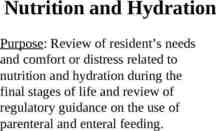Prosecution of MMIW Cases MMIW Task Force Meeting June 24, 2020
18 Slides979.18 KB

Prosecution of MMIW Cases MMIW Task Force Meeting June 24, 2020

What are MMIW cases? Murder cases Trafficking Sexual Assault Domestic Violence Assault Firearms Offenses Other Crimes

Click icon to add picture Exclusive, Assumed, or PL280 Statutorily-Conferred Jurisdiction

Crimes of General Application Those offenses in which there is a federal interest no matter where they occur and no matter who commits them: Federal Trafficking Offenses VAWA Offenses Firearms Offenses Narcotics Offenses

Click icon to add picture Exclusive, Assumed, or PL280 Statutorily-Conferred Jurisdiction

Are we in Indian Country? Not In Indian Country In Indian Country There might be Tribal Criminal Jurisdiction No Tribal Criminal Jurisdiction No Federal Criminal Jurisdiction, UNLESS Crime of General Applicability There might be Federal Criminal Jurisdiction There might be State Criminal Jurisdiction Need to answer more questions

Always ask these 4 questions, in this order: Where did the crime occur? Is it Indian Country or not? What is the jurisdiction framework? Who is the suspect? Indian or Non-Indian? Who is the victim? Indian or Non-Indian? What did they do? Is it a Major Crime?

Major Crimes Act – 18 USC § 1153 Enumerated offenses: Murder Manslaughter Kidnapping Maiming Sexual abuse offenses under chapter 109A Incest Felony assault under section 113 Assault against a child under 16 Felony child abuse and neglect Arson Burglary Robbery Felony theft under section 661

Federal Jurisdiction in Indian Country Indian Victim Indian Suspec t NonIndian Suspect Non-Indian Victim Federal – Major Crimes Act Federal – Major Crimes Act or General Crimes/ Assimilated Crimes Federal – General Crimes Act/ Assimilated Crimes Act State

WITHOUT A GOOD INVESTIGATION JURISDICTION AND PROSECUTION DO NOT MATTER

An investigation that enables a prosecution The investigation required depends on the type of case Complete victim interview – not just the facts of the incident Corroboration, corroboration, corroboration Evidence to support a victim Evidence to proceed without a victim

Challenges in MMIW Cases Law Enforcement Coordination Challenges in Multi-Jurisdiction Cases Distrust of Law Enforcement and Prosecution Reluctant Victim Lack of Corroboration Delayed Report Incomplete Report PROOF BEYOND A REASONABLE DOUBT (knowing and proving are two different standards)

Working with Victim Witness Services A Key in a Successful Prosecution

A Victim-Centered Approach to Prosecution With whom is the victim or victim’s family comfortable sharing information? Who should be in the room during interviews and trial preparation? A collaborative approach to victim services Early and frequent communication is key regardless of good or bad information

THE PROSECUTION Charges, Plea Negotiations, Trial, and Sentencing

Dynamics of a Prosecution Benefits Challenges Unpredictability of Other Parts of the A Voice is Heard Accountability Process (Judges, Juries, Observers, Defendant, Opposing Counsel) Proof Beyond a Reasonable Doubt Justice Communication (Charges, Plea, A Sense of Safety Admissibility of Evidence – the Tip of the Sentence) Iceberg Problem Victims and Witnesses facing the Defendant and the Courtroom

Education of Prosecutors Coordinated Effort to Educate Working to Improve Prosecutions How the Members of the Task Force Can Improve a Prosecution Members of the Prosecution Team (Law Enforcement, Victim Specialists, Paralegals) Coordinated Effort to Educate Legal Community Coordinated Effort to Educate the Communities Served Building Trust and Bridges

Questions Deidre Y. Aanstad Assistant U.S. Attorney and Tribal Liaison [email protected] 612-664-5710






